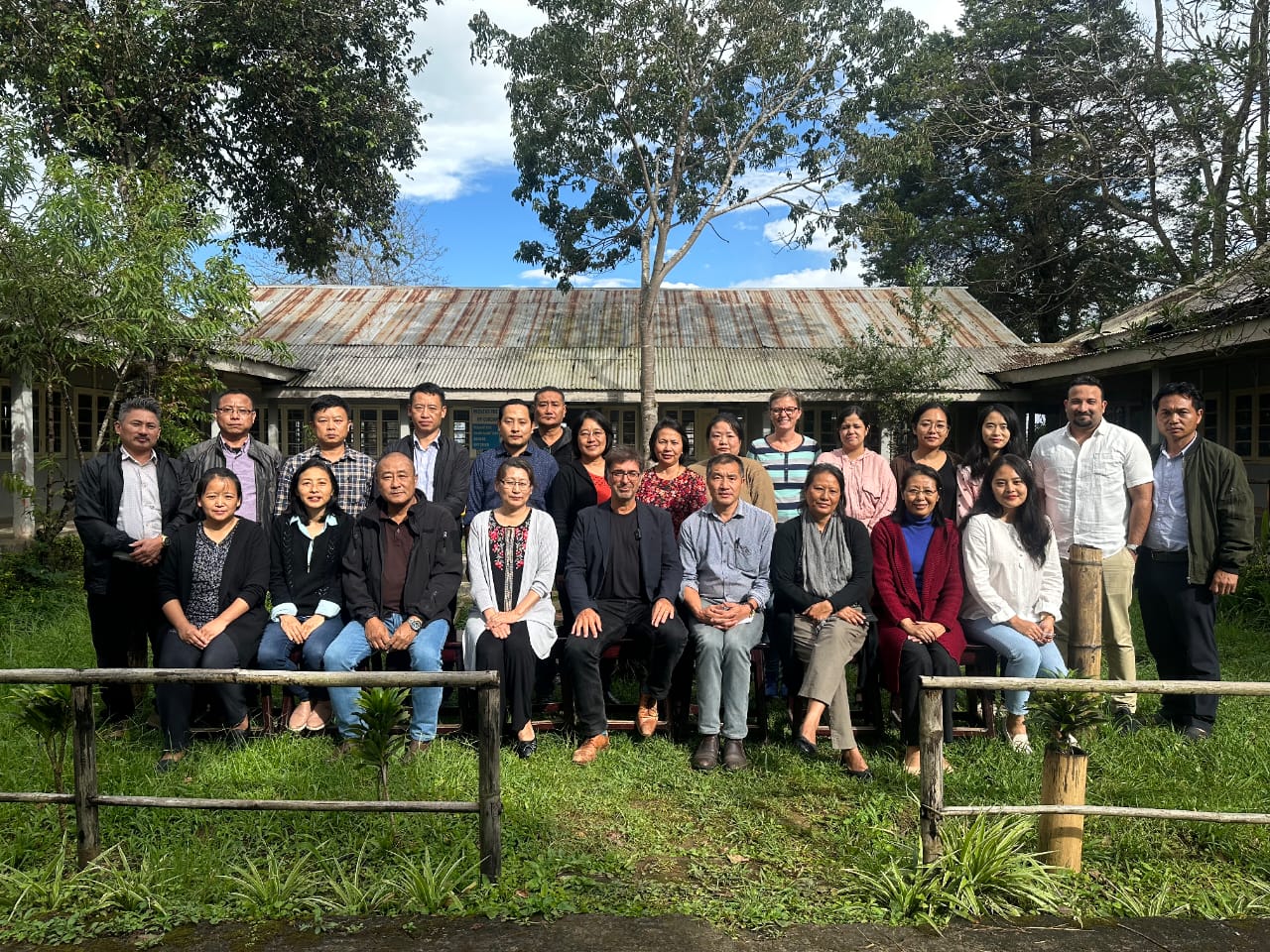SATURDAY, SEPTEMBER 20, 2025
- Home
- Scholars evolve curricula to develop traditional knowledge
Scholars evolve curricula to develop traditional knowledge
Share

KOHIMA — Senior lecturer of Environmental Anthropology and director of Centre for Bio-culture Diversity at the University of Kent, United Kingdom (UK), Dr. Rajindra Puri, has emphasised the importance of preserving, conserving, documenting and transmitting the deep and rich traditional knowledge of the people.
Clearing some misconceptions about traditional knowledge, Dr. Puri stated that traditional knowledge does not mean ‘old’ or ‘dead’ knowledge but is a ‘living’ knowledge embedded in the rich cultural practices of the people for generations.
Dr. Puri stated this during the seven-day training on curricular development of traditional knowledge held at Kohima Science College, Jotsoma, from September 14 to the 22nd.
[bsa_pro_ad_space id=1]An update from Kohima Science College, Jotsoma, stated that the training was conducted titled ‘Traditional knowledge: Cultural heritage for the future,’ which was organised by the Indo-German Bilateral Cooperation under its project ‘Protection and sustainable management of aquatic resources in the Northeastern Himalayan region of India’ (NERAQ). The event was organised in collaboration with the Centre for Bio-cultural Diversity, University of Kent, United Kingdom.
The building was held to facilitate curriculum development on traditional knowledge proposed to be introduced as a new course and offered by the college in line with the National Education Policy (2020).
The new course would be introduced as a multi-disciplinary subject to be offered by the department of Anthropology, Botany and Zoology of the college.
It stated that the week-long training course covered a range of topics encompassing traditional knowledge such as methods, ethics, variation, classification, transmission, ethnoecology, biological knowledge and justice.
The training course concluded with the framing of a preliminary syllabus framework.
[bsa_pro_ad_space id=1]It mentioned that the college has planned to introduce the paper as a value-added course (VAC) in the 2024 academic session and spread over two semesters.
It added that the Indian Ministry of Environment, Forest and Climate Change (MoEFCC), in partnership with Deutsche Gesellschaft für Internationale Zusammenarbeit (GIZ), is implementing the project with funding support from the German Federal Ministry for the Environment, Nature Conservation, Nuclear Safety and Consumer Protection (BMUV) under the International Climate Initiative (IKI).
The overall project objective was to strengthen the conservation and sustainable use of the unique aquatic ecosystems in the region, which are the basis of life for millions of people.
Altogether, 16 participants comprising faculty and research scholars of the college attended the training programme.
Also read: Konyak Union lauds Health department’s prompt response

